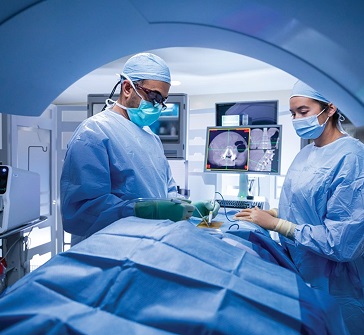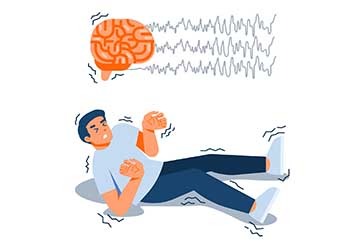 Book Appt.
Book Appt.
 Call Now
Call Now


Parkinson's Disease (PD) is a chronic and progressive neurological disorder that affects millions of people worldwide. Named after Dr. James Parkinson, who first described the condition in 1817, PD has garnered extensive attention from researchers, clinicians, and caregivers due to its profound impact on movement, cognition, and overall quality of life.
PD primarily stems from the degeneration of dopaminergic neurons in a region of the brain known as the substantia nigra. These neurons play a crucial role in transmitting signals that regulate movement and coordination. The hallmark pathological feature of PD is the accumulation of abnormal protein deposits, known as Lewy bodies, within brain cells. These deposits disrupt normal cellular function and lead to the characteristic motor and non-motor symptoms of the disease.
Symptoms
Diagnosis and Differential Diagnosis
Diagnosing PD is a complex process that often involves a thorough clinical evaluation, including a detailed medical history and comprehensive neurological examination. There is no definitive test for PD, making it crucial for healthcare providers to consider various factors. Differential diagnosis is essential, as several other conditions can mimic PD, such as essential tremor, multiple system atrophy, and drug-induced parkinsonism.
Treatment Approaches
While there is currently no cure for PD, various treatment options aim to alleviate symptoms and improve quality of life. Levodopa, a precursor to dopamine, is a primary medication used to replenish dopamine levels in the brain. Other drugs, such as dopamine agonists and MAO-B inhibitors, can also be prescribed to enhance dopamine function or delay its breakdown.
Non-pharmacological interventions, including physical therapy, occupational therapy, and speech therapy, are instrumental in managing motor and functional impairments. Deep brain stimulation (DBS) surgery, a neurosurgical procedure, has emerged as a viable option for individuals with advanced PD who do not respond well to medication alone.
Continual advancements in neuroscience and medical research are shedding light on potential avenues for PD treatment and prevention. Genetic studies, neuroprotective strategies, and stem cell-based therapies hold promise for the future. Additionally, efforts to better understand the role of environmental factors in PD development are contributing to a more comprehensive understanding of this complex disorder.
Parkinson's Disease remains a significant global health challenge, affecting individuals and their families on a profound level. As our understanding of the underlying mechanisms and treatment options continues to evolve, there is hope for improved outcomes and a better quality of life for those living with PD. With ongoing research, multidisciplinary care, and support, we strive towards a future where the impact of Parkinson's Disease is greatly reduced.
SHALBY Sanar International Hospitals provides extensive medical procedures backed up with our state-of-the-art technology and a team of highly qualified & experienced clinical experts.

Patient from Iraq gets treated by Dr. Harnarayan Singh | SHALBY Sanar International Hospitals

15 year old Patient from Liberia gets treated by Dr Harnarayan Singh | Neurosurgery & Spine Surgery

Mrs. Khalida Khaleel from Iraq Overcomes Degenerative Disc & Grade 1 Spondylolisthesis

Successful Treatment of a Patient from Uzbekistan for Degenerative Disc Disease and Back Syndrome

Surviving Stroke: Bipasha Banerjee's Testimony on Timely Intervention

Successful Intraoperation Neuro Monitoring on patient Hasan from Iraq

Successful removal of Glioma using advanced machines

A multidisciplinary care worked wonders for Ms. Akhtamova from Tajikistan

Treatment for Brain Aneurysm - Al Qumairi Saeed Mohsen Awadh from Yemen
Our doctors pen down their research findings and experiences from time to time. Their words provide deep insight into the latest techniques, technologies and other advancements in healthcare. It provides expert answers to all kinds of health questions for real-life issues.
VIEW ALL




Since the day of its foundation, SHALBY Sanar International Hospitals is committed to provide comprehensive healthcare services. It regularly organizes awareness programs in its premises and encourages outdoor healthcare activities and camps with an intent to put focus on preventive healthcare.
VIEW ALL